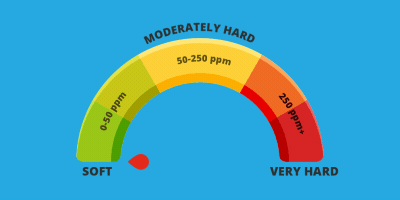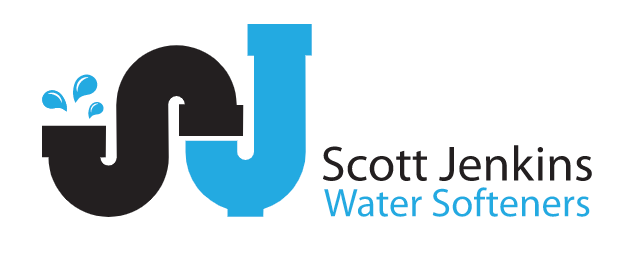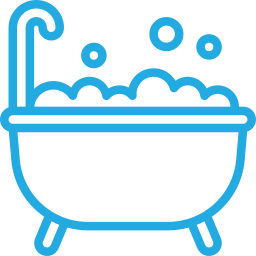How hard is the water in Rottingdean?
Water hardness reading:
276 ppm (very hard)

Hard water abounds in Rottingdean. This is the reason.
Rottingdean, like so much of the south-east coast, is notable for its very hard water. The soil is chalky, which is full of minerals like calcium and magnesium. Whenever it rains and the water seeps into the underlay, these minerals have the effect of turning the water hard from its natural soft state.
As you may well know, this isn’t great news for our skin and hair; the more you wash in hard water, the drier they get. Gels, shampoos, washing powders and detergents all have a tough time with hard water. It washes the life out of everything, including your laundry.
And it gets worse. Hard water creates limescale, which makes it impossible to maintain clean and shiny kitchen and bathroom surfaces. And the scale just keeps coming back.
Of greater concern is what hard water does to central heating systems. It clogs boilers and tanks with scale, which over time seriously downgrades performance, wastes unnecessary amounts of energy and will eventually require a replacement boiler – way before its time.
The easy, permanent and cost-effective solution is to have a water softener fitted. It’ll save you money and create numerous lifestyle benefits – starting with better looking skin and hair.
The water hardness level in Rottingdean is 274 parts per million (ppm). That’s hard by any standard. Having a Scott Jenkins water softener in your home and that reading will reduce to virtually zero.
Rottingdean – an Overview
Annual rainfall: 25.59 inch or 650mm.
Rottingdean is an historic village on the outskirts of Brighton, often the subject of picture postcards, bordering Saltdean, Ovingdean and Woodingdean. In 2019, the population stood at 14,324.
The Black Horse, a public house on the High Street, is understood to be the oldest entire building in Rottingdean. It was built during the reign of Henry VIII, around 1513. Challoners, the old manor house of Rottingdean, dates back to 1450, although only the cellars remain of the original structure.
Rottingdean is known for its black wooden windmill, a Grade 2 listed landmark, erected on Beacon Hill in 1802 to the west of the village.
Notable former residents of Rottingdean include the author Rudyard Kipling and tennis player, Fred Perry who won Wimbledon during the 1930s. World War One veteran Henry Allingham who was a resident of nearby St Dunstan’s. The board game Cluedo, launched in 1949, also had its origins in Rottingdean.
Mains Drinking Water and Sewerage Services in Rottingdean
Residents of Rottingdean have their mains water and sewerage services supplied by Southern Water.










